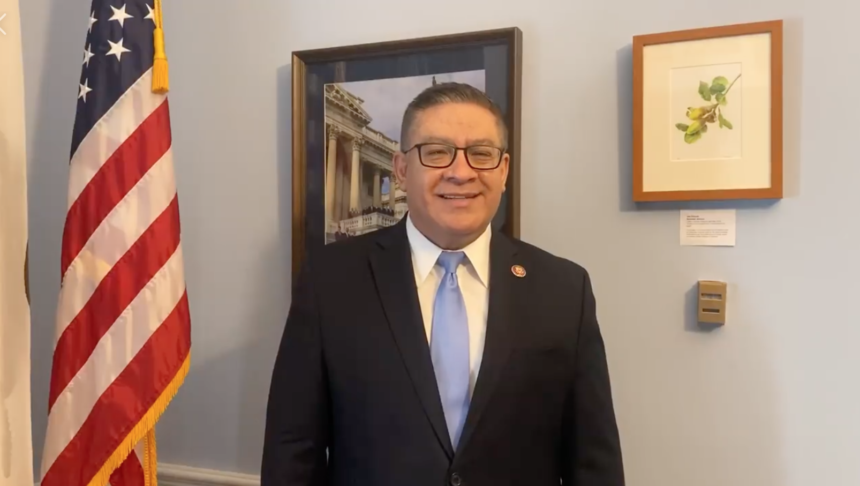Rep. Salud Carbajal co-sponsors new Justice in Policing Act

SANTA BARBARA, Calif. - Congressman Salud Carbajal is throwing his support behind a bill that would reform policing in America. It comes two weeks after the shooting death of George Floyd in Minneapolis, Minn. that shocked the nation and sent thousands of people to the streets in protest.
The Justice in Policing Act was introduced by Rep. Karen Bass (D-CA), Chairwoman of the Congressional Black Caucus. It's billed as the first-ever comprehensive approach to hold problem police officers accountable and rebuild trust between law enforcement and the communities they serve.
“No person of color in America should have to live in fear of being killed by a police officer," Rep. Carbajal said. "Moreover, no rogue police officer should be able to use the cover of their badge to shield themselves from accountability."
Carbajal, who joined protesters in Santa Maria last week added, "I’m proud to be an original cosponsor of the Justice in Policing Act, which makes long overdue reforms to ensure our law enforcement can better serve all members of their community.”
Critics to an overhaul of police practices argue some reforms go too far. Santa Barbara County Sheriff Bill Brown recently sat in on a virtual meeting with City of Goleta leaders. He urged them to be careful in condemning police brutality. He said in some recent cases where police used force, they involved people who were coming towards officers and threatening their safety.
“If you intermingle people in those cases with cases like George Floyd and Ahmaud Arbery, I think it will cause people to look at that and say ‘hey wait a minute, those cases are not on the same level.’ They’re all tragic, they’re all cases we wish hadn’t occurred,” said Brown.
Brown said there are some situations where deputies have to resort to deadly force in order to protect an officer or someone else.
The Justice in Policing Act of 2020:
- Prohibits federal, state, and local law enforcement from racial, religious and discriminatory profiling, and mandates training on racial, religious, and discriminatory profiling for all law enforcement.
- Bans chokeholds, carotid holds and no-knock warrants at the federal level and limits the transfer of military-grade equipment to state and local law enforcement.
- Mandates the use of dashboard cameras and body cameras for federal officers and requires state and local law enforcement to use existing federal funds to ensure the use of police body cameras.
- Establishes a National Police Misconduct Registry to prevent problematic officers who are fired or leave on agency from moving to another jurisdiction without any accountability.
- Amends federal criminal statute from “willfulness” to a “recklessness” standard to successfully identify and prosecute police misconduct.
- Reforms qualified immunity so that individuals are not barred from recovering damages when police violate their constitutional rights.
- Establishes public safety innovation grants for community-based organizations to create local commissions and task forces to help communities to re-imagine and develop concrete, just and equitable public safety approaches.
- Creates law enforcement development and training programs to develop best practices and requires the creation of law enforcement accreditation standard recommendations based on President Obama’s Task force on 21st Century policing.
- Requires state and local law enforcement agencies to report use of force data, disaggregated by race, sex, disability, religion, age.
- Improves the use of pattern and practice investigations at the federal level by granting the Department of Justice Civil Rights Division subpoena power and creates a grant program for state attorneys general to develop authority to conduct independent investigations into problematic police departments.
- Establishes a Department of Justice task force to coordinate the investigation, prosecution and enforcement efforts of federal, state and local governments in cases related to law enforcement misconduct.
